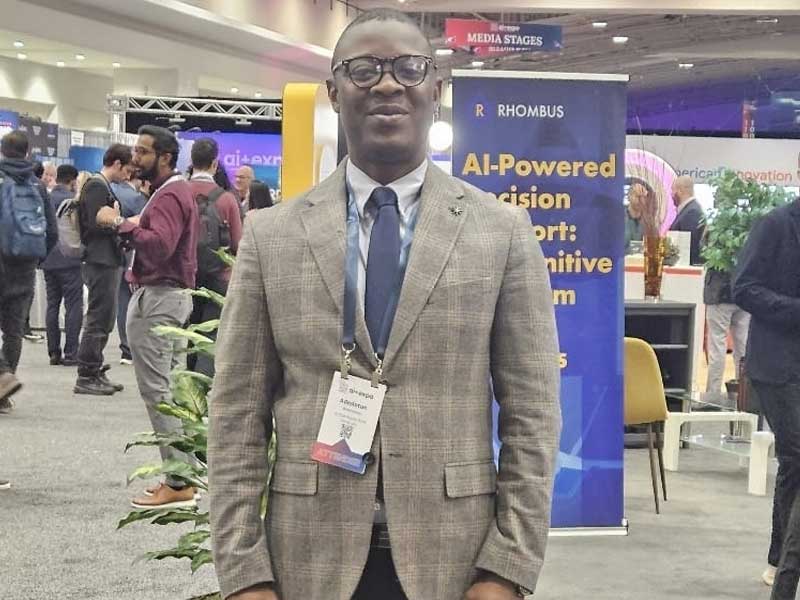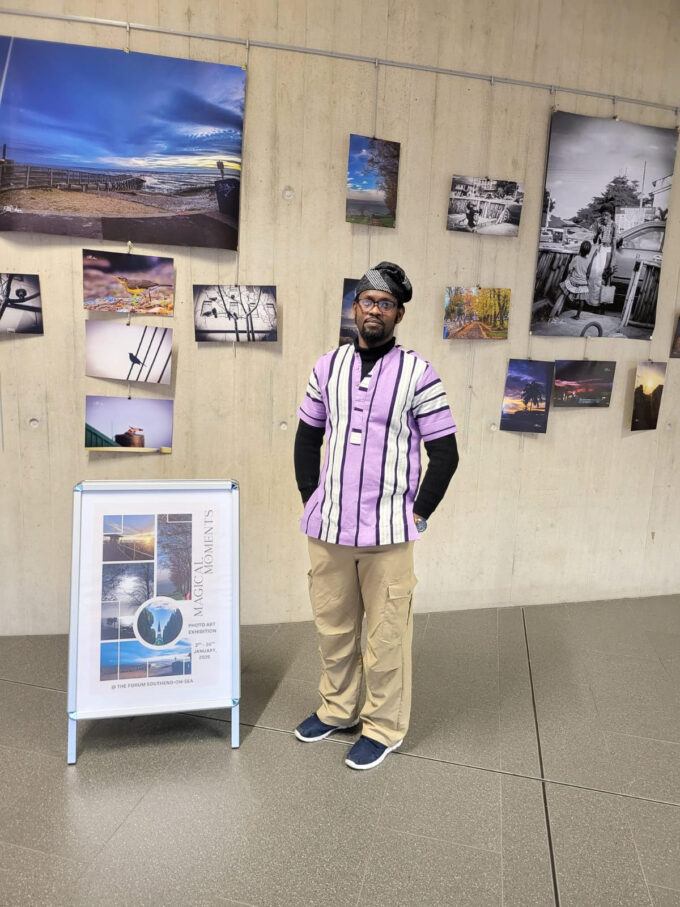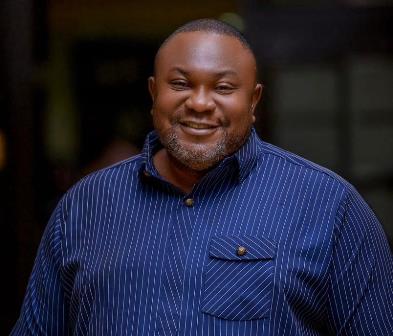Vanessa Obioha
More than 1.6 billion people globally lack access to adequate housing, according to reports, and Africa alone will need over 200 million new units by 2030. Adedotun Ademowo, the Founder of E-HabTech Innovation LLC and CEO of Envo IQ, is among the few innovative leaders tackling this global housing crisis. In this interview, the certified Project Management Professional with over a decade of expertise in real estate and digital transformation shares insights on other innovative real estate solutions he’s offering to underserved communities. Below are excerpts:
How can modular construction specifically help solve Nigeria’s 22+ million housing deficit?
Modular housing allows for the mass production of standardised housing components in a factory setting, which are then transported to the site and assembled quickly. In Nigeria, where land bureaucracy, labour inefficiencies, and inflation affect traditional construction timelines, modular housing presents a scalable and time-saving solution. It also allows us to integrate solar power and off-grid systems ideal for areas with unreliable infrastructure.
How adaptable is this model across other African countries, particularly in rural or underserved regions?
Very adaptable. Whether it’s informal settlements in Kenya or overcrowded urban corridors in Ghana, the needs are similar: speed, affordability, and resilience. Our approach at E-HabTech is to create replicable, modular blueprints that can be adjusted to local building codes and climate zones while maintaining quality and cost-efficiency. Local material sourcing and workforce training also create jobs and stimulate regional economies.
The global housing crisis seems to be worsening each year. From your vantage point, what is the scale of the problem and how are you responding to it?
You’re right, according to UN-Habitat, more than 1.6 billion people globally lack access to adequate housing. Africa alone will need over 200 million new units by 2030. Nigeria contributes over 22 million units to that deficit. Even in the U.S., rising mortgage rates, zoning laws, and income disparities have made homeownership harder for many. That’s why I founded E-HabTech Innovation LLC, to build affordable, smart, and sustainable housing systems for underserved communities.
And in the U.S., where zoning and regulation are different, how can modular construction bridge the affordability gap for low-income earners?
In cities like Baltimore, Atlanta, and across the DMV region, traditional construction is expensive and slow due to labour shortages and zoning bottlenecks. Modular housing offers a faster, greener alternative. In Prince George’s County, we’re working with housing nonprofits and local authorities to design smart, tech-integrated workforce housing that meets HUD and ICC standards. We’re also exploring opportunity zones to attract social impact investors.
What sets E-HabTech apart in such a saturated and complex real estate and tech ecosystem?
E-HabTech combines modular construction with renewable energy, IoT-based smart home technology, and urban agriculture. Our communities are designed as micro-ecosystems; each home integrates solar power, energy-efficient devices, and a shared greenhouse. We’re not just building structures; we’re creating resilient living environments that address food insecurity, energy poverty, and economic exclusion, especially for low-income families.
How does your experience in PropTech position you to lead housing transformation across both emerging and developed economies?
PropTech is not just about apps or virtual tours. It’s about using data and automation to optimise the entire housing lifecycle from land acquisition and modular design to energy monitoring and maintenance. In developed markets like the U.S., it means enhancing operational efficiency. In Africa, it’s about leapfrogging outdated methods and adopting sustainable solutions from day one. That’s what makes E-HabTech a cross-market disruptor.
What role does project management play in bringing a bold idea like this to life?
Project management is the backbone. We use Agile methodologies for our pilot community rollouts, lean frameworks for budgeting, and stakeholder mapping to manage cross-sector relationships. Whether dealing with land acquisition in Lagos or permitting in Maryland, a structured but flexible approach ensures timelines are met, risks are mitigated, and impact is measurable.
Are there any new or upcoming projects in Nigeria or the U.S.?
Yes, our 10-unit modular pilot community in Prince George’s County is entering the permitting stage. It will feature integrated solar systems, smart meters, and community greenhouses. In Nigeria, we’re working with urban planners and real estate cooperatives to pilot a 25-home prototype in Epe, Lagos, and we’re also exploring partnerships in Abuja. Our long-term plan is to establish regional modular housing production hubs across West Africa.
What partnerships have been instrumental in your growth?
Strategic alliances with faith-based organisations, NGOs, housing authorities, and policy think tanks have accelerated our credibility and access. For example, our pilot in Maryland is backed by a coalition of real estate cooperatives and impact investors. In Nigeria, we’re aligning with local government housing agencies, community leaders, and diaspora networks to co-fund and scale community prototypes.
You also lead the AI Club at Bowie State University. How do you see AI influencing the future of housing?
AI will shape everything from energy management and predictive maintenance to demand forecasting and community planning. With Envo IQ, we’re already using AI to reduce energy waste and optimise costs for tenants. AI can also drive automated eligibility assessments, mortgage risk prediction, and urban resilience planning. It’s not just about buildings, it’s about building smarter lives.
What would you advise young African innovators looking to enter PropTech or sustainable real estate?
Start with empathy. Build with impact in mind. Use data. Respect local contexts. And don’t wait for perfect funding or permission. Modular and PropTech are Africa’s ticket to solving a generational challenge and your ideas are more than valid, they’re necessary.
That sounds revolutionary. How does your second venture, Envo IQ, support this vision?
Envo IQ is our AI-powered platform that uses predictive analytics to help residents monitor and optimise home energy usage. It’s tailored for low-income housing, allowing families to save on utility bills while reducing environmental impact. Together, E-HabTech and Envo IQ create a data-driven housing ecosystem scalable for both urban and rural markets.
You’ve presented your ideas on global stages. Could you share a bit about the international recognition your work is receiving?
Certainly. I currently serve as a Graduate Research Assistant at Bowie State University, where I also lead the AI Club and am affiliated with the Entrepreneur Innovation Centre. This past spring, I was honoured to present at the Global Solutions Conversation Program, powered by IREX and the Stevens Initiative. My paper, “Bridging Africa’s Housing Gaps Through Modular and PropTech Solutions,” was well received. Other published works, like “PropTech and Modular Housing: The Future of Sustainable Real Estate in Africa” and “Smart Energy Monitoring in Emerging Economies,” are also cited in regional development discussions and available on Google Scholar.
How do your innovations align with broader global development goals, particularly the SDGs?
ADEDOTUN: Our work directly aligns with UN SDG 11 “Sustainable Cities and Communities.” Specifically, target 11.1, for safe and affordable housing; 11.3, promoting inclusive urbanisation; and 11.b, building resilient structures in resource-constrained settings. E-HabTech’s modular homes are 30% more cost-effective than traditional buildings and deploy in half the time. That kind of agility is key in crisis zones and emerging economies.
Your pilot projects are drawing attention. Can you tell us more about the partnerships and locations involved?
We’re working in Prince George’s County, Maryland, which faces many of the same challenges as cities in Nigeria: affordability gaps, food deserts, and infrastructure needs. We’ve partnered with local nonprofits, housing authorities, real estate cooperatives, and faith-based institutions. These partnerships help us design for real-world needs and build with the community in mind. Our next target sites include Lagos, Abuja, and Epe, where the demand for integrated, affordable living solutions is urgent.
What inspired you to launch E-HabTech, and what was your early journey like?
E-HabTech was born out of years of working in real estate and watching both high-end and low-income markets struggle with inefficiencies. While serving in leadership roles at Azizi Developments, DAMAC, and Total Grace Group, I saw firsthand how innovation wasn’t trickling down to the people who needed it most. That was my trigger. I knew there had to be a better, tech-driven way to build dignified homes so I combined my experience in business development, PropTech, and project management to launch this vision.
What’s the ultimate vision for E-HabTech and your work in PropTech?
To create community-centred, tech-powered housing that delivers dignity and opportunity. Whether it’s in Washington, D.C., or Lagos, the future of real estate must be agile, data-driven, and inclusive. My mission is to merge African ingenuity with smart technologies to solve both local and global housing challenges. For policymakers and tech entrepreneurs, I would like them to think beyond shelter. Housing is a platform for health, education, and upward mobility. Use data. Embrace modular. Build with purpose. And most importantly, engage the communities you’re designing for. Technology alone doesn’t solve problems, people do.

















Leave a comment